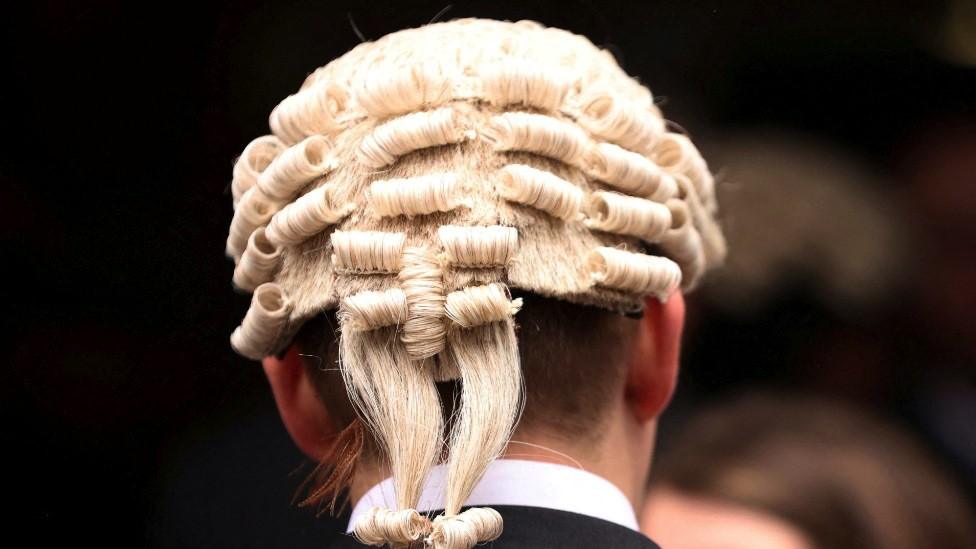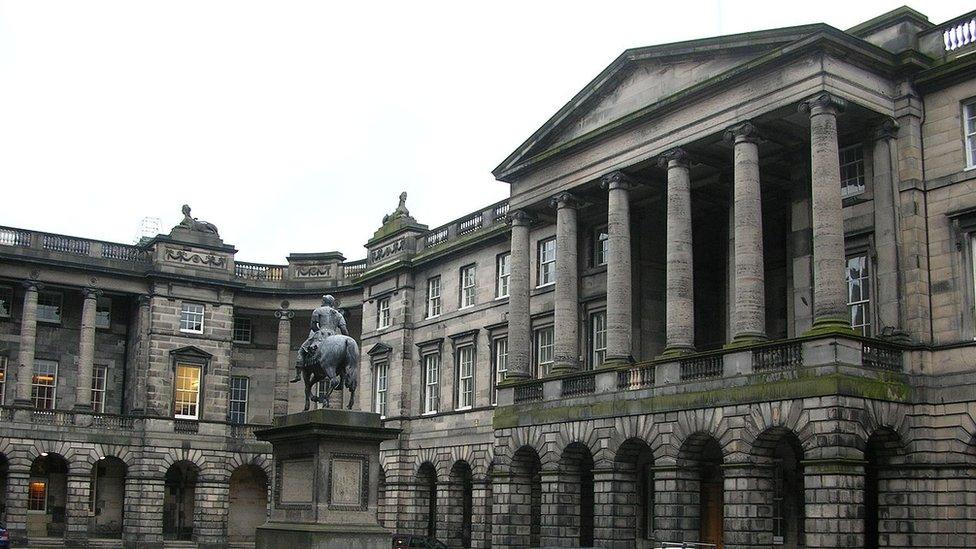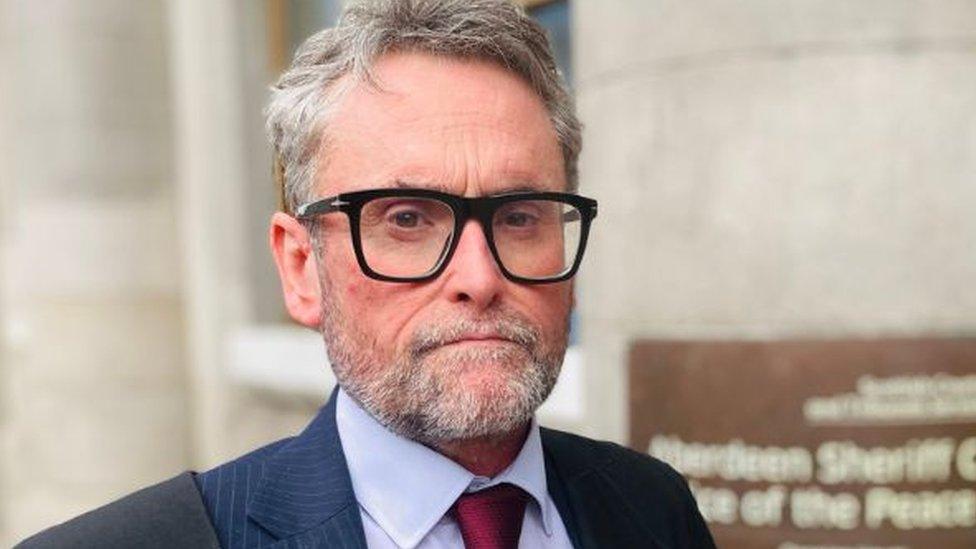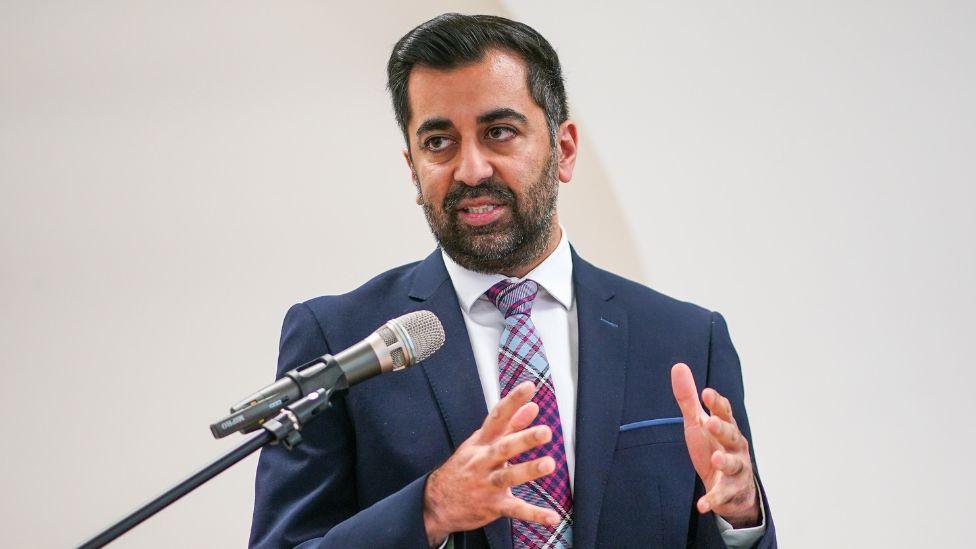Senior judges raise concerns over juryless trials in Scotland
- Published

Some of Scotland's most senior judges have raised concerns about a pilot of juryless trials for rape cases.
The Senators of the College of Justice said the proposal may not meet fair trial requirements in a response to the criminal justice committee., external
Juryless trials, proposed to tackle low conviction rates, are one of a number of measures being considered in a criminal justice review.
First Minister Humza Yousaf has previously defended the plan.
Two years ago a review chaired by Scotland's second most senior judge, Lady Dorrian, suggested holding a pilot scheme. This proposal was included in the Scottish government's Victims, Witnesses and Justice Reform (Scotland) Bill.
The pilot would see anyone accused of rape or attempted rape stand trial before a single judge or sheriff, who would decide whether or not they are guilty.
Earlier this year lawyers across Scotland said they would join a near "unanimous" boycott of a pilot.
However chief executive of Rape Crisis Scotland Sandy Brindley previously said a single-judge trial is still a fair trial.
Originally reported by The Herald on Sunday, external, the response from the Senators of the College of Justice raised issues with whether the plans for juryless trials meet European Court Human Rights (ECHR) requirements for a fair trial.
The group is made up of 36 judges that sit across the country's most important courts, including the Court of Session and the High Court.
The response said: "The pilot scheme amounts to a court set up by the government with a limited life span, and subject to examination and review by the government. That may not be an independent tribunal.
"It may not comply with the requirements of ECHR article six. It may not be within the legislative competence of the Scottish Parliament under section 29(2) of The Scotland Act 1998. Further, the combination of such a court with judges who have no security of tenure in that court may not satisfy the requirements of a fair trial."
The issue of diversity was also raised by those opposed to the plans.
The response continues: "The majority of judges are in late middle age, male, from a white Scottish ethnic background and are educated to university level.
"Many would argue that a number of people from differing backgrounds and ages combining to reach a decision is preferable to one person deciding alone."

The Senators of the College of Justice is made up of judges from across Scotland including the Court of Session
Some judges in the college are in favour of the proposals as it could prevent juries being influenced by "rape myths" and highlighted the low conviction rate for rape by juries.
Humza Yousaf has also previously pointed to a "weight of evidence" that juries are affected by rape myths and misconceptions.
The Victims, Witnesses and Justice Reform (Scotland) Bill also proposes the removal of the not proven verdict and reducing the size of juries from 15 to 12.
The criminal justice committee is reviewing early stages of the bill.
It is estimated they will start considering whether ministers should be given the right to pilot juryless trials from January to mid-February.
Earlier this week Lord Carloway, who is a Senator of the College of Justice, told the BBC that the most vulnerable victims are still facing "outmoded" practices in court.
He said the justice system was not yet good enough at dealing with rape victims and children and that it was time to look again at why they were still being forced to go to court to give evidence.
- Published9 May 2023

- Published8 May 2023
